May 22, 2025 | 03:23 GMT +7
May 22, 2025 | 03:23 GMT +7
Hotline: 0913.378.918
May 22, 2025 | 03:23 GMT +7
Hotline: 0913.378.918
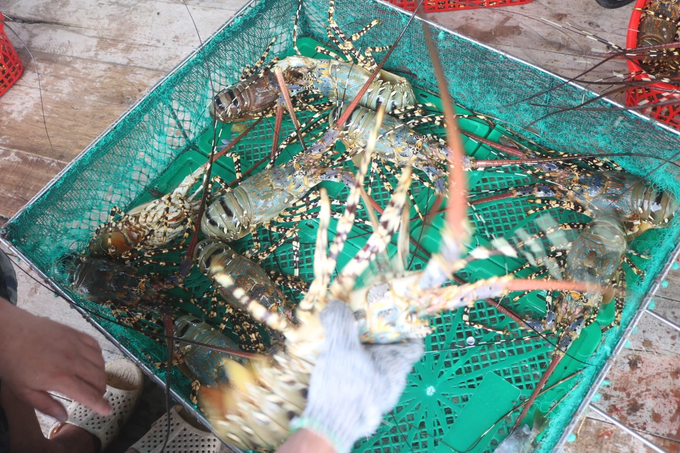
Enterprises reflect that currently, Vietnam's live tropical rock lobsters are not exported to the Chinese market at all. Photo: Kim So.
Linh Phat Seafood Trading and Services Company Limited, Cam Ranh City, Khanh Hoa Province, has just sent a document to the Department of Quality, Processing and Market Development, Center for Agroforestry and Fishery Quality Region 3 on the issue of exporting tropical rock lobsters to the Chinese market.
The business said that China is tightening the import of lobsters from other countries, including the significance of live tropical rock lobsters from Vietnam.
China assesses wild lobsters as an endangered species. Suppose a country wants to export this product. In that case, it must provide documents, including a certificate of artificially raised lobsters, a Specially managed certificate for wild aquatic animals, and a Certificate approving fantastic aquatic products from foreign countries.
Linh Phat Company said that currently, it is almost impossible for Vietnam's live tropical rock lobsters to be exported to the Chinese market. The shipments that the company has purchased, according to partners' orders, are not allowed to be imported, causing great damage to the company.
"Domestic lobster production is still extensive, of great value, and the quantity is ready for the year-end holidays. China's tightening of related regulations affects lobster farming households and exporting businesses," Linh Phat company said.
Live blue lobster export activities are also affected by the above regulations. China's stricter controls have caused many live seafood deaths. Dead seafood is only 30-50% of the price of live seafood.
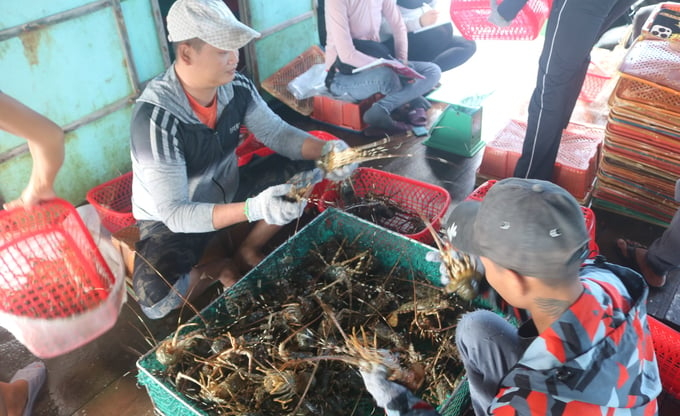
Businesses and lobster farmers face many difficulties when they cannot export to China. Photo: Kim So.
In a report sent to Deputy Minister of Agriculture and Rural Development Phung Duc Tien on November 1, the Department of Quality, Processing and Market Development said it had received business feedback.
The Department sent dispatch No. 773/CCPT-ATTP dated September 11, 2023, to the Embassy and Trade Office of Vietnam in China, requesting to arrange to work directly with the Department of Animal and Plant Quarantine Supervision, the General Administration of Customs of China officials to authenticate information. Please provide specific information on new regulations (if any) for importing live lobsters. We recommend notifying customs at border gates to allow customs clearance of Vietnam's live lobster shipments until there is an official announcement.
On September 28, the Department continued to send official dispatch No. 912/CCPT-ATTP to the Nam Ninh Customs Department, requesting to direct Dong Hung Border Gate Customs Branch to remove obstacles and create conditions for live seafood exports in Vietnam fast and convenient.
According to the Embassy, the Vietnam Trade Office in China, the Animal and Plant Quarantine Supervision Department, and the General Department of Customs of China have received the dispatch and promised to arrange work in the near future.
As usual, if China issues new regulations on food safety control and disease safety of imported seafood, it will notify trading partners, including Vietnam. However, to date, the Department has not received any related notification.
China is diversifying its tropical rock lobster imports from Canada, the US, New Zealand, Cuba, India, Brazil, and Mexico... and will likely affect import demand from Vietnam.
To solve problems for businesses, the Department of Quality, Processing and Market Development commits to continue to keep in touch and urge the Chinese side. In case it is not possible to meet in person, the Department is ready to discuss online with the technical Department.
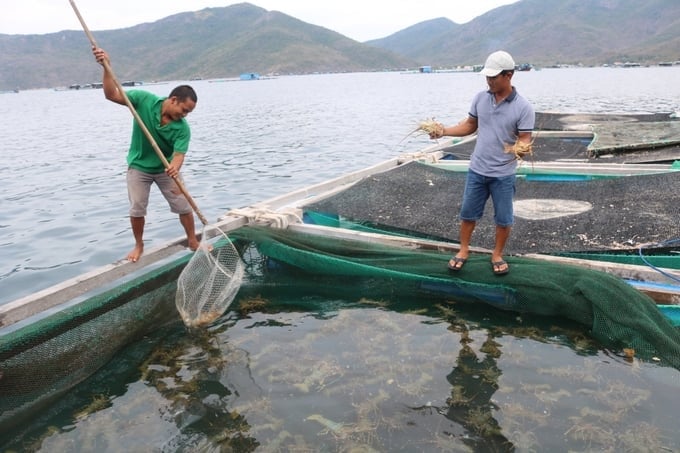
The Department of Fisheries requested the Department of Agriculture and Rural Development of provinces and cities that raise lobsters to closely monitor market information to advise people and harvest at the appropriate time. Photo: Kim So.
On November 7, 2023, the Department of Fisheries sent an official dispatch to the Departments of Agriculture and Rural Development of provinces and cities and the Fisheries Association of provinces that raise lobsters.
While waiting for China's response, the Department requests the Department of Agriculture and Rural Development of provinces and cities to strictly implement the direction of the Ministry of Agriculture and Rural Development on lobster breed management and simultaneously guide, propagate, and mobilize people to register for cage farming according to Article 36 of Decree 26/2019/ND-CP dated March 8, 2019.
The Department of Agriculture and Rural Development is responsible for reviewing and arranging suitable cages and, according to the approved local plan, promptly advise the Provincial People's Committee to remove difficulties when carrying out registration procedures for cage aquaculture.
In addition, the Department of Agriculture and Rural Development needs to closely monitor market information to advise people to choose farming subjects in the direction of reducing cotton lobster farming, increasing green lobster farming and harvesting at the appropriate time; Organize and build a chain of quality and safe lobster products, ensuring traceability of origin.
When required, the Department of Agriculture and Rural Development must store and update complete information in the diary and maintain relevant documents and records to serve traceability.
The Department of Fisheries also requested the Aquaculture Research Institute 3 to coordinate with the Department of Agriculture and Rural Development of provinces and cities to promptly guide people and assist in handling technical problems (if any) during the process feed.
Translated by Tuan Huy
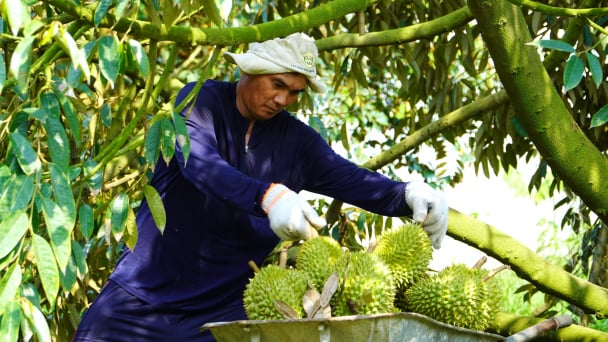
(VAN) Durian-producing localities need to coordinate more effectively with central authorities to improve the traceability, monitoring, and response systems in case of violations.
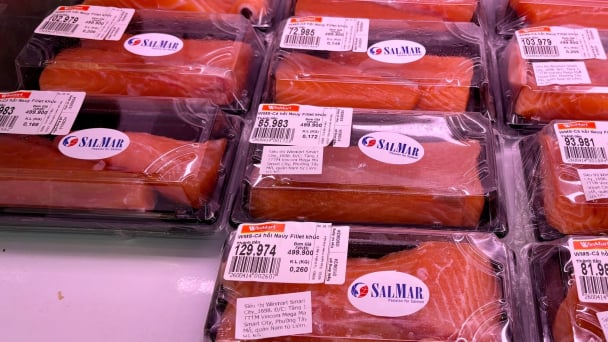
By minimizing waste, embracing modern technology, and expanding into niche markets, SalMar - the second largest producer of Atlantic salmon in the world has built a successful strategy to conquer the global market.
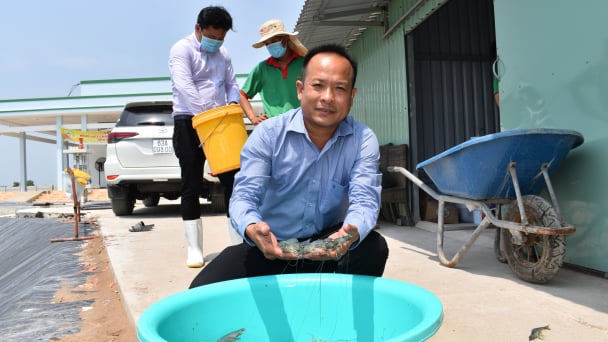
(VAN) One of the key factors for businesses to effectively take advantage of tariff preferences under these FTAs is the rules of origin.
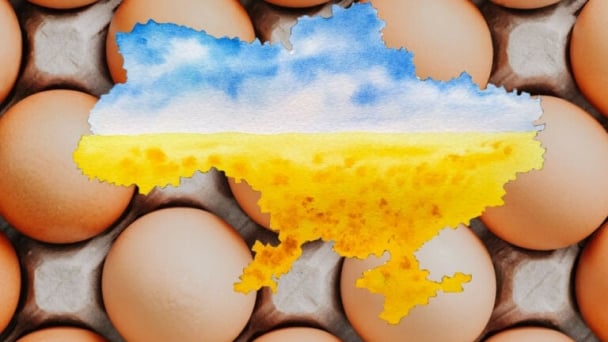
(VAN) Oliyar, a prominent Ukrainian oil and fat manufacturer, has revealed plans to build a farm for 2.3 million laying hens in the Lviv region. The additional production quantities promise to change the competitive landscape of the egg market of the Eastern Europe region.

(VAN) On May 15, Ministry of Agriculture and Environment of Vietnam hosted the 'Connecting Vietnam - Germany agricultural, forestry and fishery trade' seminar in Berlin, Germany.

(VAN) In the face of counterfeit and imitation products, Khanh Hoa Salanganes Nest Company hopes for the prompt completion of the legal framework, strict enforcement against violations, and protection of the bird’s nest brand.

(VAN) Japan's efforts to lower the price of rice through the release of its stockpile may finally be making some progress, albeit at a snail's pace.